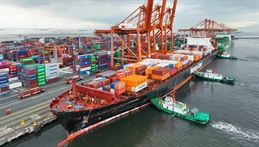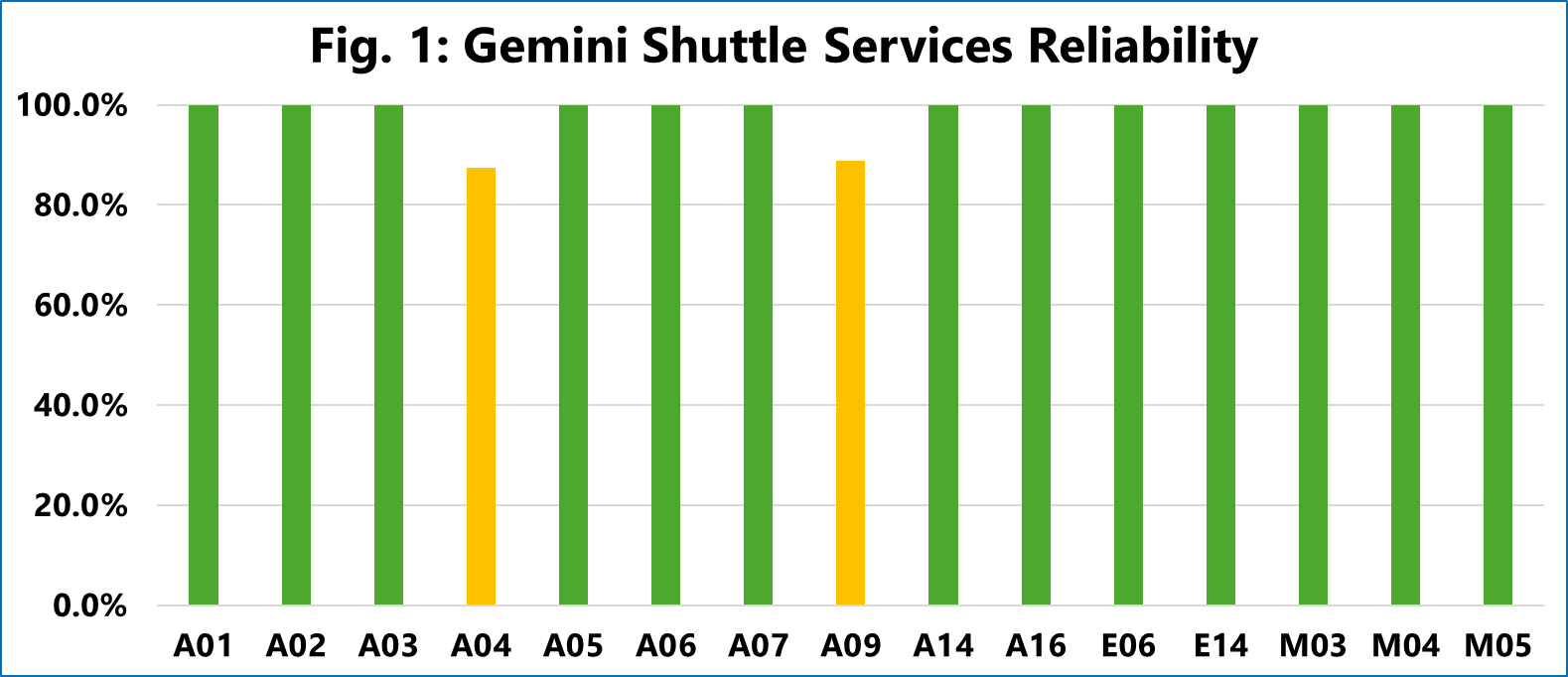
Sea-Intelligence said the Gemini Cooperation's shuttle services achieved a schedule reliability of 98.4% in February, contributing significantly to overall network performance.
The Danish maritime consultancy firm said that in the last three decades of container shipping alliances, the domain of the alliances has always been exclusively on mainliner, deep-sea services, with individual carrier members operating their own feeder services.
But, Gemini Cooperation — a joint initiative by Hapag-Lloyd AG and Maersk A/S — has taken a different approach to their alliance network design, incorporating a hub-and-spoke model within their formal alliance, with fewer mainliner calls and an increased focus on transhipment via shuttles.

[Source: Sea-Intelligence]
Sea-Intelligence said the Gemini shuttle network, when fully rolled out, will be quite expansive, with 28 shuttle services. 15 of the shuttle services were launched in February 2025. Of those, 10 were deployed in Asia, 2 in Europe, and 3 in the Indian Subcontinent/Middle East.
"Overall, schedule reliability for the Gemini shuttle services was 98.4% in February 2025," it said, adding that all but two shuttle services, A04 and A09 (both deployed in Asia), had 100% schedule reliability.
Alan Murphy, CEO, Sea-Intelligence, noted that despite this, there are a few factors to take into consideration: Firstly, the true performance test of the new alliances (and MSC's new network) will be when they are fully rolled out in July 2025.
He noted that during the roll-out phase, the first month is likely to be the least challenging, as only a small subset of vessels will be phased into the new network, while the later roll-out months are traditionally more challenging, as many vessels are phasing in at the same time.
"Secondly, we only have February 2025 scores for 15 of the 28 planned Gemini shuttle services, and while the number of arrivals for the 15 services is significant, only a small subset of European shuttles had been launched in February," he said.
"Thirdly, none of the Gemini mainliner services made connections from origin to destination regions (e.g., from Asia to Europe) in February, as it takes more than a month to make such connections."
The analysis noted that the Gemini shuttles have thus "only" been feeding the mainliner services in February and have yet to receive containers from mainliners to be shipped to the final discharge port.
"That said, even if it is still very early days, it is still an impressive first performance," Murphy said.



